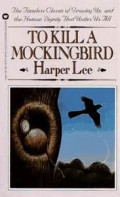Tips to Improve Your Fiction Writing
Are You Ready to Take Your Writing to a New Level?
What is it you are after as a writer?
It’s a valid question, and one I would hope you can answer.
What are you trying to achieve?
Hopefully, no matter what genre you write in, or what your visions of the future look like, one of your goals is to improve your writing. I would be blown away if any of you reading this stated that you could care less about improving.
For those of you who are fiction writers, let me ask you this: how’s it going for you? Or as Dr. Phil is fond of saying, “how’s that working out for you?”
Maybe you have a couple ebooks written and published, and they have received moderate success, but you would like to see your sales skyrocket with the next book that you publish.
Maybe you would like to attract the attention of a major publishing firm.
Maybe you would like to graduate from short stories to a novella, or God forbid, a full-length novel.
And maybe you would like to graduate from wannabe fiction writer to accomplished fiction writer.
If any of those describe you, then this article should help.

Give Yourself a Fighting Chance By Maximizing Your Productivity
When are you most productive? I am a morning person. My best writing happens before noon. Once I have eaten lunch, my productivity takes a nosedive of mammoth proportions.
I am also most creative in the morning.
Knowing that, I schedule my writing time to match my productivity and creativity. I begin writing every morning at seven, and I rarely write in the afternoons. That does not mean I do nothing, however, after lunch. Those hours, from noon to four, are spent researching, editing, and working on blogs or my website.
So I ask you again: when are you most productive? Once you answer that question, you can schedule, hopefully, time each day to take advantage of your creative inner-clock.
Visit the Unknown to Expand As a Writer
We can all write about what we know. Anyone with any writing skills at all can take past memories and experiences and turn them into a story.
But…..
If we continue to do that, are we growing as writers?
I have a friend. We’ll call her DJ since I don’t have her permission to use her real name. Anyway, DJ is currently working on her first novel, and she has undertaken a challenge that would bring a water buffalo to his knees. She is writing a historical fiction based on World War 2, and each day is spent checking historical facts and being stunned by the sheer volume of research that she must do in order to achieve accuracy.
DJ’s example is extreme, but it is very helpful for any writer.
Growth occurs in any art form when the artist/writer/ musician steps out of their comfort level and is willing to risk entering the unknown.
Let me give you another example. My current novel, “Resurrecting Tobias,” is really a very comfortable story for me. A lot of “me” is in it. My next novel, “A Season for Killing,” is not comfortable at all. It is about a cold-blooded killing protagonist who must chase down and kill a serial killer.
I believe the next novel will be my best, and I believe that because it is forcing me to toss aside that which is comfortable, and embrace that which is anything but comfortable.
Try it!
Toss Aside the Mundane
I read a quote once from movie director James Cameron. He compared storytelling to taking your characters on a journey….and making it excruciating.
Great storytelling, in my opinion, is grabbing your readers by the throat and dragging them into a maelstrom of drama and action, so that, by the time the story has ended, they are perspiring and gasping. Great storytelling should be visceral as well as cerebral.
So, is your writing great storytelling, or is it mundane?
Whatever you have been doing, ratchet it up a notch or ten, and make it excruciatingly exciting.
Your readers will thank you for it.
Learn from the Masters
Please notice I did not say “read the masters.” Rather, I said to learn from them.
Take your favorite novel and dissect it. Take it apart aspect by aspect. How was it structured? What were its themes? How did the author maintain rhythm? How did they describe scenes, and how did they introduce their characters?
Great works are great for a reason. Perhaps you can learn those reasons by actually studying great writing? Perhaps, by even imitating great writing, you can produce great writing yourself?
It’s worth a try, don’t you think?
Give Them More Than They Paid For
The basic requirements for a novel to be publishable are great characters, a fascinating plot, and captivating language skills.
Those are the basic requirements.
But we want to go beyond basic, don’t we? We want our previously crawling infant of a story to strap on wings and soar, don’t we?
Give your readers more than is expected of you.
Toss in some historical information. Toss in some interesting geographical information.
Example: in my just-finished novel, I make reference to the Ice Age Missoula floods, which scoured the west and formed what is now eastern-Washington. It is an interesting geography lesson tossed into a reflective piece about the struggle of humanity.
That is the type of “extra” that your readers will appreciate. Heck, toss in a recipe or a store recommendation. Why not? As long as it does not distract from the story, why wouldn’t you do it?
There is a café in New Orleans called the “Café Du Monde.” I have seen it mentioned in at least ten novels over the years. You can bet that, when I next visit New Orleans, I will go to that café, and it is because several writers made the effort to give me a bonus in their novels.

Get in Touch with Your Emotions
I have said this in countless articles already, but I’m going to keep saying it until I see all of you practicing it. We all share five senses. We all experience the thrill of taste, sight, touch, smell and sound. Use those senses to get in touch with your emotions, and use your emotions to bond with the emotions of your readers.
Characters, in order to seem real, must connect with us emotionally. This is a deal-breaker if you are a writer. If I want mundane, all I have to do is think back to my days in Catholic elementary school being taught sentence diagramming by Sister Mary Elizabeth.
But I don’t want mundane when I read. I want to feel what the characters should be feeling. If someone is murdered then I need to feel my bowels loosen and my stomach ball up in knots. If a loved one dies in a novel, I should feel the remorse that the surviving characters feel.
If I don’t feel those things, the author has failed.
Do you want to fail or do you want to succeed?

Let Us See What the Characters See
And let us smell what the characters smell, and let us hear what they hear, and touch what they touch, and….and….and
Get it?
Don’t tell me that the character saw a child run across their lawn. Tell me the character’s memories of when she was like that child, running free with the wind in her hair, and a sense of never-ending freedom.
Don’t tell me that your protagonist kissed his wife goodnight and went to bed. Tell me that he tasted her love for him, and it reminded him of the first time they met, when he was sure he had died and gone to heaven because this beautiful creature deemed him worthy of a “hello.”
Get it?
Join me on my writer's website
- William Holland | Thoreau of the 21st Century
Stop by and let's talk about writing.
That’s All for Today
Seriously, if you were to follow these suggestions, your writing would immediately rise to the next level….but will you follow them?
Do you want to improve, or are you just interested in gaining views, clicks, likes, and some residual money?
If you want to improve as a writer then get busy. It is within your capabilities. All you need now is willingness.
2014 William D. Holland (aka billybuc)
“Helping writers to spread their wings and fly.”









